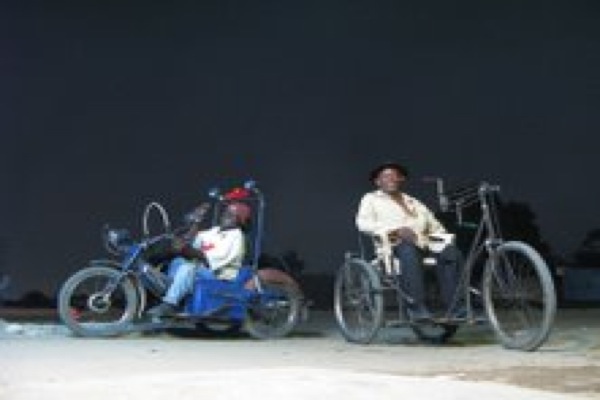 |
|
by Leroy Moore/Illin n chillin Krip-Hop Nation: When and where is the festival? Krip-Hop Nation: How old is the festival? Krip-Hop Nation: How many countries are represented? Krip-Hop Nation: World music encompasses everything from traditional to avant-garde and from acoustic to electronic. What kinds of music are represented? Krip-Hop Nation: When and how do you look for artists? Krip-Hop Nation: Describe the award ceremony and the award. Anna Pötzsch of : Last year for the first time we decided to present not only one but two WOMEX Awards, one to an artist, and the other to honour an educational institution. The award ceremony on Sunday 1 Nov 12:00 will consist of honorific speeches, congratulating the winners on stage as well as presentations of their work either through a film (> institution) or through a 45-minute showcase (> artist). The WOMEX Award statuette was created at a time when there was no such thing as Asia or Europe, black or white, First World or Third. The Award figurine is an ancient mother goddess statue dating back about 6000 years to the Neolithic age. It was found in Haçilar in modern-day Turkey and bears witness to the existence of a matriarchal society. Such a female goddess appears in many ancient mythologies as an initial primal figure, representing fertility and procreation either as the earth itself or as a mother giving birth to the world and all the creatures in it.
Krip-Hop Nation : How does the work and message of Staff Benda Bilili (SBB) connect with the festival?Anna Pötzsch: WOMEX seeks to recognize those who set the highest standards in world culture, who articulate not only in their music, but in their very lives, the richest values of our community," says WOMEX General Director Gerald Seligman. "Our yearly Award is neither lifetime achievement nor, necessarily, recognition of popularity. It is our chance to try to echo the motivations, the dedication, the principles and priorities of the artists and professionals who dedicate their lives to world music. In every way, Staff Benda Bilili sets the standard for such an objective. And there is an added value to awarding them for, in many ways, it is also the resilience of the Congo itself that we honour in recognizing SBB. The Congo has always been a musical powerhouse of Africa, supplying us with so many of that vast continent's greatest artists. It's so good to see the Congo back. And it's so wonderful that it should be back in the form of Staff Benda Bilili." Krip-Hop Nation: Is this your first time having disabled musicians at the festival? Anna Pötzsch: It is the first time that WOMEX presents a group with several wheelchairs on stage. Krip-Hop Nation: By awarding Staff Benda Bilili, did you have to work on accessibility issues? Krip-Hop Nation: Do you think that the music industry have a lot to learn from Staff Benda Bilili?
|
Original Post Date
2009-12-20 12:00 AM
Original Body



